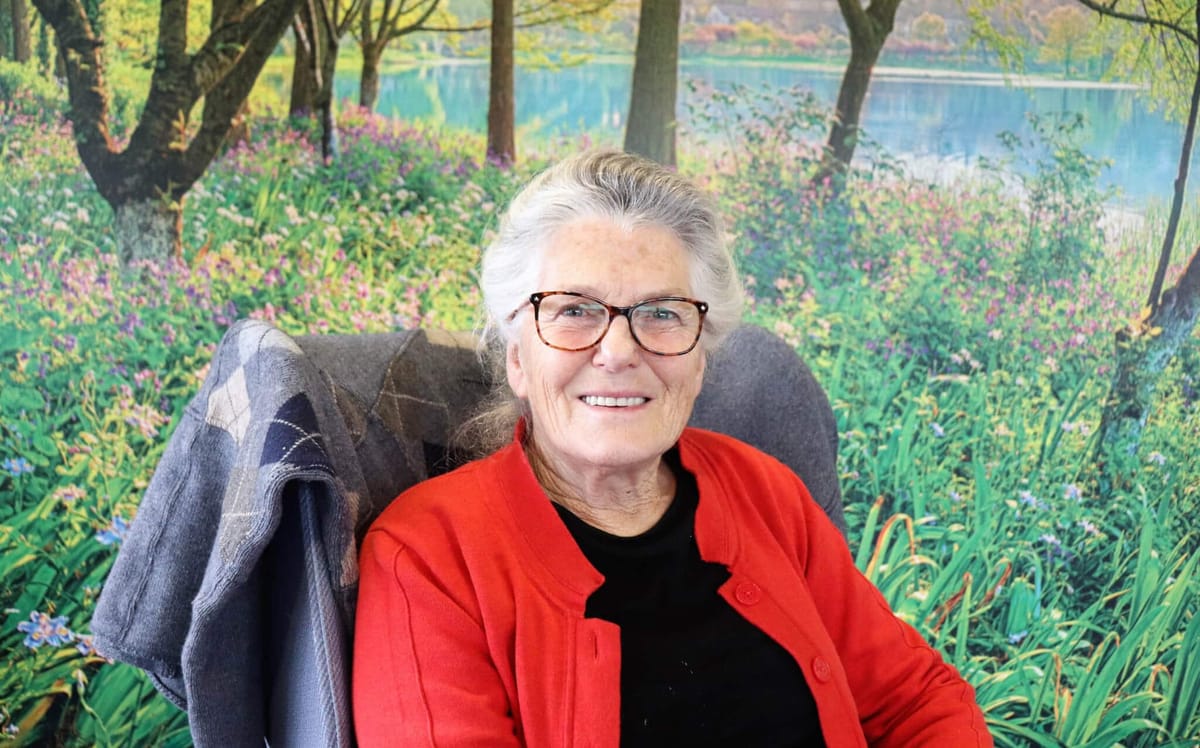Invercargill resident Beverley Sherman knows from experience how important it is to get to hospital immediately after the onset of stroke symptoms, as two weeks after a stroke the “miracle patient” is being discharged from hospital having made a full recovery.
Bright-eyed and articulate, Beverley recalls getting dressed in her Otatara home on a Wednesday morning like any other, when she experienced a “fizzy feeling” in her neck and confesses she didn’t take much notice. However, a few minutes later, when double vision set in, she quickly lay on the bed and had just enough time to call out to husband Errol to call an ambulance.
“I thought I was having stroke but I don’t know what made me think that – and then I don’t remember anything apart from finding it very hard to breathe.”
She is grateful for Errol’s quick action in calling the ambulance and for the fast work of the St John’s staff in getting her to Southland Hospital.
Once at Southland Hospital, Beverley was given a clot-busting drug to attempt to stop the stroke, a process called ‘thrombolysis’. Clinical evidence shows the sooner a patient is thrombolysed, the lower the rate of disability from a stroke.
The decision was then made to send her by air ambulance to Christchurch Hospital for a state-of-the-art procedure that became available to Southlanders this year – clot retrieval. Clot retrieval is performed by a neurologist passing a fine wire into the vessels of the brain to retrieve the clot.
Beverley smiles as she recalls the neurologist calling her “a miracle patient”. After returning to Southland Hospital, she spent time resting and doing exercises.
“Every day I’m better. Everything has worked so amazingly, I’ve no lasting effects, my speech is coming right, my hands work normally and two weeks after my stroke I am going home.”
She is acutely aware that if she hadn’t got to hospital so quickly for treatment, that she could have been in hospital for months receiving rehabilitation for ongoing disability.
“Errol is just thankful I’m alive. It was a big shock for him, “she says. Beverly, a former obstetric nurse and now great-grandmother, is delighted to be going home to her family, her lovely garden and her little dog, and has some words of advice and encouragement for other Southlanders.
“Get to know the signs of a stroke and when you experience a symptom, don’t wait, call an ambulance and get to hospital as fast as you can.
“It was quick action that helped me – Errol, the ambulance people and the hospital all played their part. I am one of the lucky ones, so, so lucky,” she says.
Beverley’s advice is backed up by Southland Hospital’s Clinical Director of Medicine, Dr Prosen Ghosh, who is urging Southlanders to recognise the signs of a stroke and to act fast.
Dr Ghosh says the message is a critical one for Southlanders, who historically are reluctant to come to hospital immediately after the development of symptoms.
“Southlanders often wait to see if their symptoms will subside with time, but with a stroke this is not a good thing. If you experience any of the FAST symptoms, call your GP, call an ambulance immediately. The quicker you get to hospital the better the outcome is likely to be. Time is of the essence here,” he says.
Know the signs of stroke, think FAST:
1. F Face – is their face drooping on one side?
2. A Arm – is one arm weak?
3. S Speech – is their speech mixed up, slurred or lost?
4. T Take Action – call 111.
Call 111 immediately if you see any signs of stroke.

